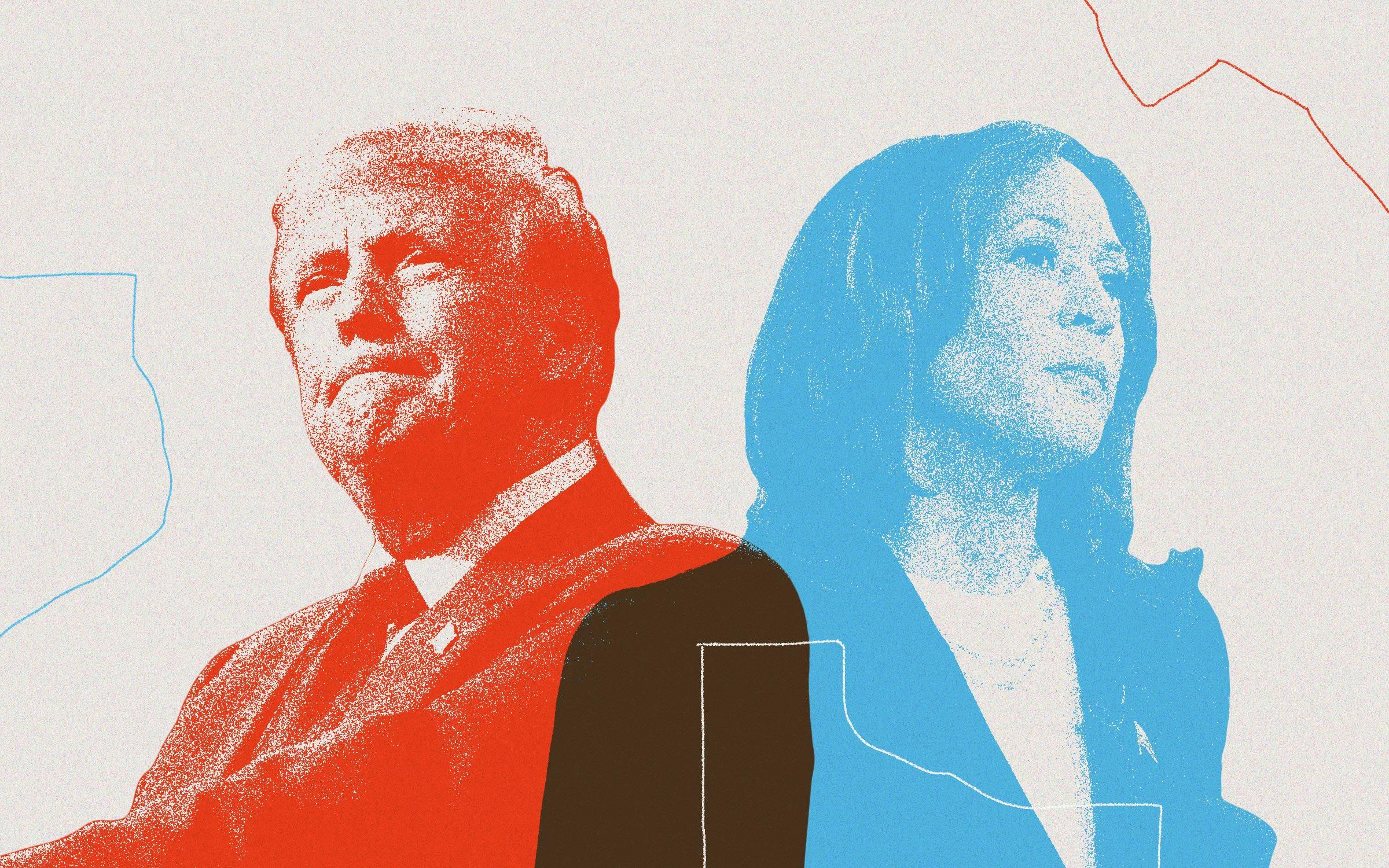Donald Trump and Kamala Harris came to Texas last week, eleven days before the presidential election, with the same goal: to mine personal narratives of women here that could drive their closing arguments home. Our state does not serve as a natural ending location for a campaign. It is not a battleground—Harris has virtually no chance of winning here—but the national stage of CNN and Fox News means it can still serve as a potent plot device. If you want to see just how badly you could suffer under the other candidate’s presidency, each nominee said, look to Texas.
Inside an austere airport hangar at Million Air’s private jet terminal, near Austin, Trump took the stage on Friday an hour behind schedule, as “Eye of the Tiger” transitioned into “God Bless the U.S.A.” He painted a dark picture of American life under siege. Harris had made Texas “ground zero for the largest border invasion in the history of the world,” he said. The state had become her “staging ground to import an army of migrant gangs.” In fact, that very day, he lamented, she would be mere hours away “to rub shoulders with woke celebrities” instead of apologizing to victims of migrant crime.
To drive his point home, he brought to the stage Alexis Nungaray, mother of Jocelyn, the 12-year-old Houston girl who police say was murdered by two Venezuelan migrants. The killing—a rare occurrence, as research by the libertarian Cato Institute shows that undocumented immigrants are far less likely than U.S. citizens to be convicted of murder—has also become central to Senator Ted Cruz’s reelection campaign as he seeks to depict his opponent as soft on the border. Nungaray has placed blame for her daughter’s death squarely at the feet of Democrats, including Kamala Harris and Cruz’s challenger Colin Allred, and has advocated for stricter controls on immigration. On Monday the Trump campaign released an ad featuring the grieving mother.
On the stage in Texas, Trump reached back and drew Nungaray to the podium, placing his arm around her as he recounted the way her daughter died. He spoke so softly that, from the back of the hangar, he was barely audible; the hum of a jet engine could be heard through an open door. But the moment was made to be broadcast. Trump stopped just short of the grisly details out of deference to the slain child’s mother and said, “Horrible things happened to her, that young, beautiful girl.” Alexis appeared to be fighting back tears. Her pain was so visible that it was difficult to watch. “I think it’s very sad,” Nungaray said from the podium, that Harris “can’t even just give me an open apology, sincere apology.”
A hundred and fifty miles away, at a star-studded rally in Houston, Harris also framed developments in Texas as an omen for women nationwide. The exuberant tone at her rally starkly contrasted the bleakness of Trump’s border apocalypse. But Harris’s tone shifted as she discussed how our state is blighted by the most severe consequences of Republican antiabortion laws. Women in Texas, even before the fall of Roe v. Wade, faced a six-week abortion ban, thanks to the state legislature’s Heartbeat Act.
Among the most powerful speakers at Harris’s rally was Amanda Zurawski, an Austin woman whose water broke when she was about seventeen weeks pregnant. Her doctors said her baby wouldn’t survive but that they couldn’t provide an abortion under Texas’s law. Three days later, Zurawski entered septic shock and was finally given an emergency procedure. “I was finally close enough to death to deserve health care in Texas,” an emotional Zurawski told the crowd of around 30,000 at Shell Energy Stadium, the professional soccer arena just east of downtown Houston. Her husband, Josh, joined her on stage. “For three long days, we begged for someone to help,” he said. “But the help didn’t come due to Texas’s oppressive, inhumane abortion laws.”
Ondrea Cummings, a San Antonio woman who developed sepsis after being refused treatment for pregnancy-related complications, and Shanette Williams, the mother of a Georgia woman who died after failing to receive an abortion, also shared their tragic stories. In between speakers, the stadium JumboTrons played Harris campaign ads featuring Trump bragging about overturning Roe v. Wade, juxtaposed with testimony from women who suffered life-threatening medical complications and trauma under abortion bans. Even the celebrities at the event—Beyoncé, her mother, Tina Knowles, and her fellow Destiny’s Child bandmate Kelly Rowland—kept the focus on abortion access. “We cannot accept a country where our daughters and granddaughters will no longer have the basic freedom that I have lived with for most of my life,” Tina Knowles said.
It feels significant that each candidate took the time, in the final countdown of the election, to use of Texas as a cautionary tale. For all its beauty and economic and cultural vitality, our state has become a twisted fable through which those vying for the White House can readily convey the dire stakes to those in, say, Michigan. Vote for me, they say, or your state could become like Texas.
Michael Hardy contributed additional reporting for this story.

